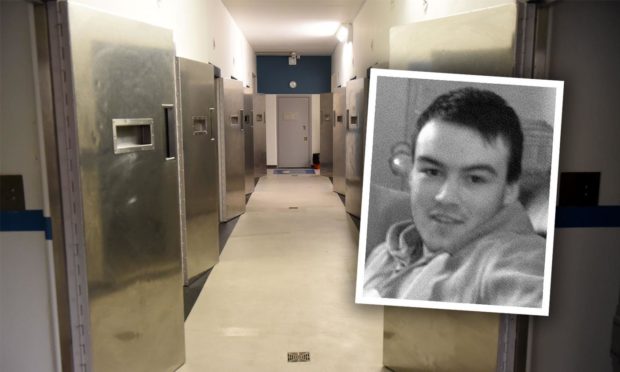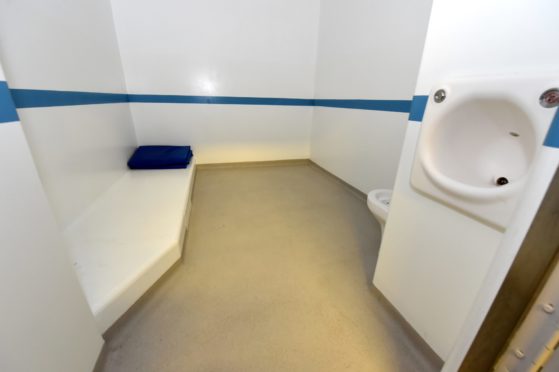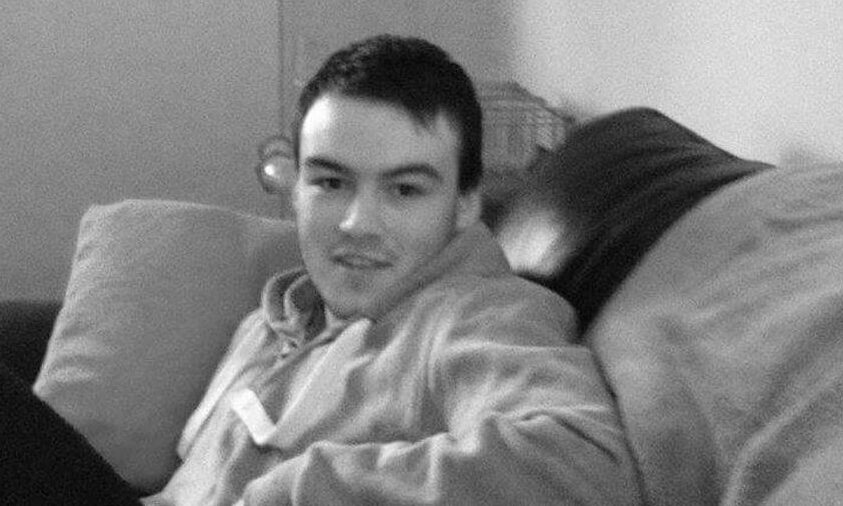A man who died in a police cell following a drug overdose could have been saved if officers had been properly briefed on his condition, an independent doctor has suggested.
A fatal accident inquiry, which is being held at Aberdeen Sheriff Court, has heard how the 20-year-old died in his sleep on June 29, 2014.
His last “meaningful interactions” with the officers – who were checking his cell every 30 minutes due to him being deemed a suicide risk – was around 12.40am, when he laughed and joked with an officer while standing at his cell door.
Three checks by a different officer between 2.45am and 4.40pm noted he hadn’t moved position, was snoring and only gave a “mumble” when asked if he was okay.
He was found unresponsive in his bed three hours later and paramedics pronounced him dead in cell 28 of the newly-opened custody block at 7.25am.
‘A lethal amount of methadone’
Yesterday Dr Katharine Morrison, an independent medical witness, told the inquiry Mr Fenty would have also faced “certain death” if he’d been sent home that evening.
She said his only real hope of surviving a methadone relapse was his deteriorating condition being spotted by those checking on his police cell.
“I do think that if Warren had gone home he would have gone home to his certain death,” she said.
“He had a lethal amount of methadone in his system. Although it had been reversed for a length of time with the naloxone drip, he would have gone home, he may have taken even more drugs and alcohol, and he would’ve gone to sleep. And he wouldn’t have woken up. Just the same way as he did in the prison cell.
“His outcome was going to be disastrous if he went home.”
Fiscal depute Muhammad Sadiq asked: “Are you saying his outcome was going to be disastrous in any event?”
She replied: “Yes. Shall we say he had a chance of being discovered and sent back to hospital in police custody, but if he had gone home, particularly on his own or without someone being alert and monitoring him the whole time, he would have died.”
She said if the force’s medic, who checked on Mr Fenty around 9pm, had been made aware of the naloxone treatment he’d been given in the high dependency unit at Aberdeen Royal Infirmary earlier that day, he may have reacted differently.
“However it is unlikely the delay in the police doctor visiting Warren would have made any difference to the outcome,” she added.
Officers and doctors in the dark
Dr Alasdair Weston, the force’s forensic medical examiner who assessed Mr Fenty, earlier told the inquiry he was given no physical notes regarding the 20-year-old’s medical treatment for an overdose at Aberdeen Royal Infirmary.
A different independent medic, Dr Michael Johnston, earlier defended the treatment Mr Fenty received, saying doctors acted the same way “any other in that situation might”.
However, Dr Morrison ultimately felt that Mr Fenty’s life “could have been extended” if custody officers had spotted the signs he was deteriorating.
She said: “He was snoring, he had become immobile, it was getting harder and harder to get him to talk, it was more and more difficult to get a response.
“It was as if officers went through the procedure but without understanding the point.”
She told the inquiry she believed that the visits around 3am provided an opportunity for either more naloxone to be administered or for Mr Fenty to have been returned to hospital.
However she agreed there didn’t appear to be any “systemic failures” which contributed to Mr Fenty’s death.
Cell surveillance and staffing issues
Earlier this week the inquiry heard how checks on the cells that evening were ‘lackadaisical’ and that various systems at the new facility, such as CCTV, were not fully operational the night of Mr Fenty’s death.
And last week one of the officers on duty that night told the inquiry that the suite was “understaffed” and he had been “running around like a headless chicken” the evening before Mr Fenty died.
The inquiry, being held virtually before Sheriff Morag McLaughlin, will continue in February.
For all the latest court cases in Aberdeen, as well as the latest crime and breaking incidents, join our new Facebook group HERE.


